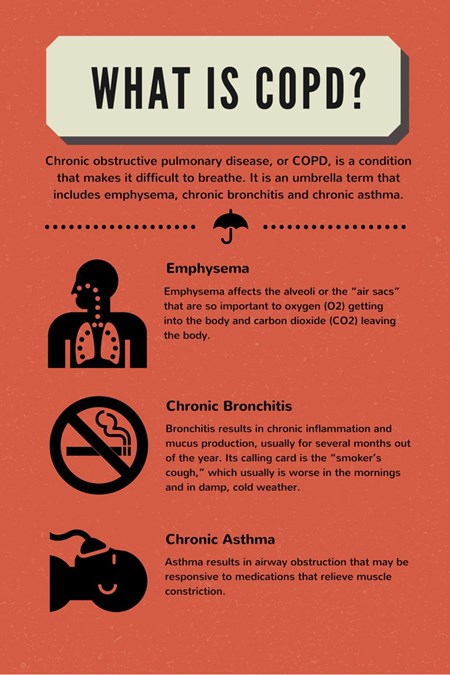Too cold temperatures further narrow already compromised airways leading to a cascade of events that can increase difficulty breathing mucus production coughing and more.
Copd and breathing cold air.
For people with copd cold.
Although there s no cure for the disease there are plenty of things you can do to help with breathing and to keep your copd from getting worse.
Temperature and weather can cause copd symptoms to worsen.
Cold weather can pose significant issues when it comes to managing your chronic obstructive pulmonary disease copd symptoms.
Here s why humidity and cold air trigger copd rt magazine.
What many who experience respiratory illness fail to realize is how closely linked the heart and lungs are in their function.
Because copd and cold weather can have such a negative impact on your body it s important that you take a few proactive measures and prepare for the onset of the winter cold.
When that happens it changes how the muscles that play a role in breathing work.
However if that warm climate is coupled with higher levels of humidity the combination can create a muggy heavy atmosphere making regular breathing all the more difficult.
Air that s very cold hot or dry can trigger a copd flare up breathing may be more difficult when temperatures are below 32 f 0 c or above 90 f 32 2 c.
Breathing in cold dry air causes adverse reactions to the lung airways and respiratory system and puts a strain on your heart.
Some people with copd get hyperinflated overinflated lungs because too much air gets trapped in them.
Warm climates can be incredibly beneficial to those with copd as warm air is typically easier to breath than cold air.
When you have copd it can be hard to breathe.
Cold air and your lungs.
Cold dry air or hot air can trigger a flare up.
Cold air also can impact your breathing especially if you have a lung disease like asthma or chronic obstructive pulmonary disease copd.
According to a study temperature extremes below freezing and above 90 f 32 c are.




























